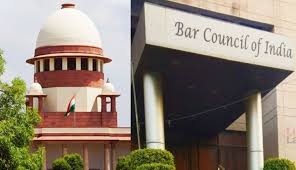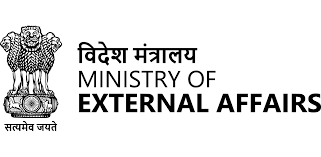Is the Entry of Foreign Lawyers a Boon or a Bane?
Is the Entry of Foreign Lawyers a Boon or a Bane?

 The Bar Council of India (BCI) is a statutory body governing legal practice in India. BCI has opened up Law practice to Foreign Lawyers and Law Firms. It has framed Rules for Registration of Foreign Lawyers and Law Firms in India, 2022.
The Bar Council of India (BCI) is a statutory body governing legal practice in India. BCI has opened up Law practice to Foreign Lawyers and Law Firms. It has framed Rules for Registration of Foreign Lawyers and Law Firms in India, 2022.
It would enable the new entry to practice foreign Law, Diverse International Law, and International Arbitration matters in India on the principle of reciprocity in a well defined regulated and control manner.
 According to the Advocates Act it is only the Advocate who is enrolled with Bar Council can practice in India. Any other person like a litigant can appear in the court only with the permission of the court, authority or person before whom proceedings are pending.
According to the Advocates Act it is only the Advocate who is enrolled with Bar Council can practice in India. Any other person like a litigant can appear in the court only with the permission of the court, authority or person before whom proceedings are pending.
The entry of the foreign lawyers and foreign firms will definitely change the landscape of legal practice in India.
The Supreme Court of India has interpreted the Advocates Act to allow the ‘fly in and fly out’ practice used by foreign lawyers. This basically means that foreign lawyers could be involved as legal representatives in International Commercial Arbitration for cases related to foreign law. In addition, it stated that these restrictions on foreign lawyers would also apply to Indian lawyers that work with foreign law firms. Furthermore, the rules also mentioned that the practice areas for foreign lawyers and legal firms shall be laid down by the BCI and if needed, BCI may reach out to the Government of India, Ministry of Law and Justice in this regard.
It must be noted that under the rules, BCI may refuse to register any foreign lawyer or law firm if ‘in the opinion of the Council, the number of foreign lawyers and foreign law firms of any particular foreign country registered in India is likely to become disproportionate to the number of Indian lawyers or Indian law firms registered or allowed to practice law in the corresponding foreign country.
However, it did not allow them to appear before the courts, tribunal or other authority or regulatory authorities.
BCI has been opposing to allow the foreign law firms in India for over a decade. But now BCI has reason it out that if they allow the foreign law firms in India it will address concerns about the flow of Foreign Direct Investment (FDI) in the country and will make India a hub for International Commercial Arbitration.
What Does the New Rule Says:
a) The notification allows foreign lawyers and law firms to register with BCI to practice in India if they are entitled to practice law in the Home Countries.
b) They cannot practice India Laws. They shall be allowed to practice transactional work/corporate work (non-litigious practice) such as joint ventures, Mergers and Acquisition, Intellectual Property matters, drafting of Contracts and other related matters on a reciprocal basis.
c) They shall not be involved and permitted to so any work pertaining to the conveyancing of the property, Title investigation, or other similar works.
d) Indian Lawyers working with foreign firms will be subject to same restrictions of engaging only in non-litigious practice.
e) The reciprocity rule will not be available if the foreign lawyer or the law firm works on the ‘Fly In’ and ‘Fly Out’ basis to advice their clients in India, provided that in such cases such lawyers or law firms does not maintain any office in India and such practice of giving advice does not exceeds 60 Days in a calendar year.
Registration Fee:
An application for registration in ‘Form-A’ along with the prescribed registration fee, as per the below-mentioned structure, should be submitted to the BCI.
- USD 25,000 for registration of a foreign lawyer along with a one-time guarantee amount of USD 15,000
- USD 50,000 for registration of a foreign law firm along with a one-time guarantee amount of USD 40,000.
Validity and Registration Renewal:
Registrations of foreign lawyers and law firms with the BCI have a validity period of 5 years, after which they must be renewed by applying to the Secretary Bar Council of India using ‘Form-B’ within six months before the expiry of such registrations.
The renewal form must be accompanied by relevant documents and a renewal fee of:
- USD 10,000 for foreign lawyers.
- USD 20,000 for foreign law firms.
In the case where a foreign lawyer’s or law firm’s registration has expired and not been renewed or cancelled permanently, or has been voluntarily terminated, the security deposited by such a lawyer or law firm shall be returned without any interest.
Eligibility Criteria for Foreign Lawyers to Practice in India:
Although permitted to practice in India, foreign lawyers must fulfill the eligibility criteria laid down by the Bar Council of India. To be eligible to practice law in India, foreign lawyers with a degree:
- Must be eligible to practice in their country.
- Must register with the Bar Council of India.
- Must not have any criminal charges or disciplinary action against them.
In case an application is rejected, the Bar Council of India shall provide the applicant with a reasonable reason for rejecting the same. In addition, if the BCI doesn’t accept the application even after hearing out the applicant due to genuine reasons, they shall refund any fee submitted as part of registration fee, renewal fee or guarantee fee, after adjusting, if any, the amount recoverable by the BCI.
Documentation Required:
- Certification from Union Law Ministry and Ministry of External Affairs.
- Documents have to be attested by the competent authority.
- Declaration from the competent authority of the concerned foreign country then that there are no ongoing cases of professional and other misconducts.
- A certificate from the appropriate foreign countries principle qualifying body details of the fee structure and other cost that an advocate must pay.
- No-objection certificate that the applicant has the good standing in the bar.
- Declaration stating that the applicant or entity will not be entitled to and will not make any claims regarding interest on the amount deposited with the BCI at the time of registration.
Advantages:
- It would facilitate firms dealing with Cross Border Mergers and Accusation.
- It will make India more visible and valuable in a global context especially international trade and commerce.
- It would prove to be a game changer in India to achieve more efficiency in talent management, Artificial Intelligence, Technology, Domain Knowledge in Global Context and management.

Conclusion:
The real picture will only merge once the schemes of things are implemented in toto. Till then we will have to wait and watch for the real image to appear on the horizon.
The real question boils down to the fact as to how much Indian lawyers will gain in real terms and how much the legal environment will benefit from the foreign lawyers and foreign firms been established in India.
It is quite ironical that recently Parliament has replaced all the old criminal laws like IPC, Cr.PC and Evidence Act on the pretext of being colonial in nature. We no longer need to carry the colonial legacy and hence it should be substituted by replacing indigenous Laws which are more suitable to the Indian citizens.
It is natural that in the cases of Mergers and Acquisitions, drafting Contracts will always be lopsided because they would naturally favor their native country rather than India eg- Cases relating to FDI’s.
There are so many law graduates who pass out every year do not find placements to keep their body and soul together. Under present scenario we find a field which is already exhausted with a large number of unemployed lawyers will be left with no future for them.
Artificial Intelligence in itself is an impotent weapon to destroy the legal careers of many youth. The entry of foreign lawyers would further accelerate the process of destruction of the practicing lawyers in India.
Till then we will have to wait and watch to see the emergence of real picture which is yet to come.
– MAMTA SINGH SHUKLA
(ADVOCATE DELHI HIGH COURT)
MOBILE – 9560044035
Email Id: adv.mamtasinghshukla@gmail.com
